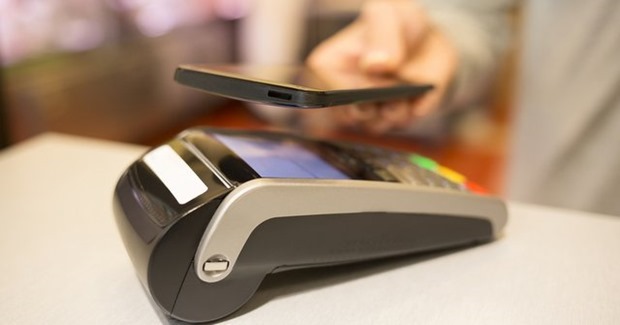This is BIG! All Govt. Transactions Above Rs 1000 May Be Now Cashless By Law

Did you know that cash based transactions consume 5-7% of our GDP right now?
In a move which can change everything related with financial services in the country, Indian Govt. has decided to go full throttle on adapting cash less payments. In fact, as per reports coming in, Govt. may soon make it mandatory to make all Govt. related transactions above Rs 1000 as mobile or digital based!
As per a report by Task Force on Aadhaar – Enabled Unified Payment Infrastructure, cash based transactions are very expensive, and by adapting cashless transactions for Govt. services and fees, 5-7% of GDP can directly saved.
The Department of Electronics and IT (DeitY) is working on this massive push for electronic based payments, which is actually part of Digital India drive. As per report published by ET, DeitY is right now creating a framework through which “inter-ministerial, vendor transactions or small payments by citizens for government services” will be made cashless as a rule.
In other words, this means that small payments of Rs 10 or Rs 50 can be made easily using mobile wallets like Paytm, Freecharge, Mobikwik or Oxygen; citizens can pay stamp duty, Govt. fees etc using their Internet banking and pay taxes using their credit cards.
One senior Govt. official shared, “Our endeavor through this project is to ensure that at least 90%, if not more, of all government payments happen through some or the other electronic mode, be it through credit card, RTGS, DBT or mobile,”, adding, “Even mobile wallets can be considered for small payments,”
The interesting thing is that, whatever expense occurs due to cashless payments (payment gateway fees, internet charges etc) can be easily balanced off by the reduced cost of maintaining cash based transactions (paper work, employee costs, data base costs, Physical storage and logistics etc). This is the reason DeitY is right now working on developing a uniform mobile app which can be used by every citizen of India to make or receive any payment from any entity.
This is the reason that Govt. may soon make it mandatory for all Govt. transactions above Rs 1000 to be made cashless as a rule.
Developments Which Prove that Cashless Payments Is Important
In 2012, National Payment Corporation of India (NPCI) extended their Interbank Mobile Payment Service (IMPS) for small merchants and traders, thereby pushing for cashless payments in a big way.
Last year, RBI opened up the small payments bank niche in the country by defining rules for such entities. This prompted large business conglomerates such as Ambanis, Mittals and telecom players to apply for opening their own small and payment banks. In August this year, RBI approved payment bank licenses for Paytm, Airtel, RIL, India Post and others so that more cashless based transactions are encouraged, and small traders can efficiently conduct their businesses. Reliance Jio has just launched their digital wallet as well.
Earlier this year, RBI removed the mandatory 2-step authentication for transactions under Rs 2000, which was a major boost for cashless payments niche in the country.
Even private sector banks such as ICICI Bank are encouraging cashless transactions, via their contact less payment platform; SBI has signed MoU with Amazon for payment processing, and talking with Snapdeal and Paypal for the same.
Paytm founder Vijay Shekhar Sharma has already declared that they will start India’ first payment bank and he made his intentions clear during his Reddit AMA, when he said that mobile wallets may actually open up a whole new world of financial services, and induce a greater amount of transparency and accountability.
Due to such big push for electronic based payments, cashless transactions surpassed paper based transactions for the first time in India.
And now, after this bigger push for electronic based payments by DeitY, we can expect some more fireworks in this regard.
We will keep you updated.

[…] year, India Govt. shocked everyone when they announced all Govt. transactions above Rs 1000 would be digital, by rule. This was seen as one of the biggest push for cashless payments ever witnessed in […]
Does this mean that they’ll unban BITCOIN? Can anyone explain to me why it was banned in the 1st place….?
Now THAT would be COOL!…..